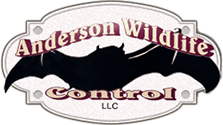They’re cute, they’re striped, and they find your trash delicious. As Connecticut residents know, raccoons in the garbage can are almost as inevitable as leaves changing colors in the fall. Sometimes, however, the raccoons don’t only “dine in” at your home…they live in, too.
So how do you put out the “no welcome” mat for raccoons if they’ve targeted your home as their favorite Holiday Inn? Following are some techniques to ensure you’re not offering a hospitable environment for your masked, furry friends.
-
Secure your trash cans
The Connecticut Department of Energy and Environmental Protection (DEEP) advises some modifications to your trash situation. Snaps can be attached to the lid and the handle can be secured to a stake driven into the ground to prevent opening and tip-over. Also effective is storing trash cans in wooden bins or in the garage to eliminate nighttime “raids.” Some Connecticut residents have had success with placing ammonia directly in the can to repel raccoons.
-
Lock up the pet food
Many people store pet food in their garages or sheds. Even if you’ve got the pet food locked up, the smell alone can attract raccoons to your property. Consider storing pet food in air-tight plastic bins, and feeding pets in the house rather than the garage or outdoors.
-
Re-situate your birdfeeders
When they can’t get something tastier (like your trash), raccoons will resort to birdseed. If you feed the birds, consider relocating your bird feeders where it’s not easy for raccoons to jump onto them from above, and consider fitting pole feeders with a metal or plastic “collar” that raccoons can’t climb around.
-
Limit their access to the roof
Raccoons get onto your roof (and, potentially, into your attic) by climbing down branches from above. Keep overhanging limbs trimmed and remove trellises to limit their comings and goings. Also, put a cap over your chimney to discourage raccoons from scurrying down into your den or living room, and check for any openings and holes they might be using as an entrance. Females looking for a safe place to have their young in the spring are most likely to try to gain access to your attic.
-
Trapping and releasing
If you’ve already got a raccoon problem, you need to get them out of your home. While it’s legal in Connecticut for homeowners to attempt this, it requires considerable knowledge of state trapping laws and legal options for handling trapped raccoons. Connecticut trapping laws require that traps are checked once each day and that the traps are properly tagged. State law also mandates that trapped raccoons are released on-site and not relocated.
-
Call the Professionals
If in doubt, call a professional wildlife control company. Anderson Wildlife understands wildlife removal and Connecticut state laws and regulations. We’ll check traps daily to make sure we’re removing animals quickly and humanely.
Contact us at 203-758-0555 to discuss how we can make your home more livable for your family and less appealing to masked bandits. We serve all of New Haven County, as well as Woodbury, Southington, Stratford, Bridgeport, and Fairfield.








